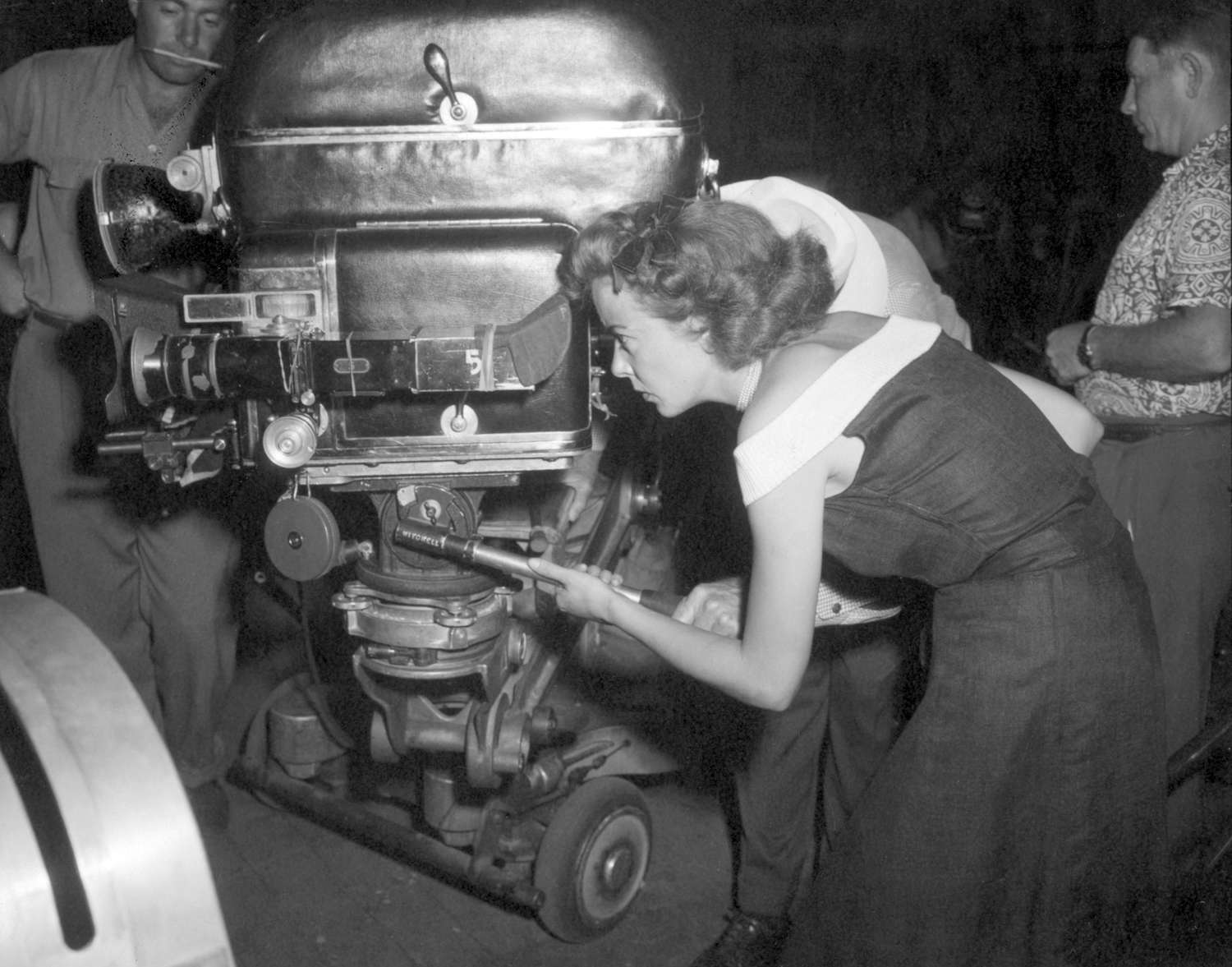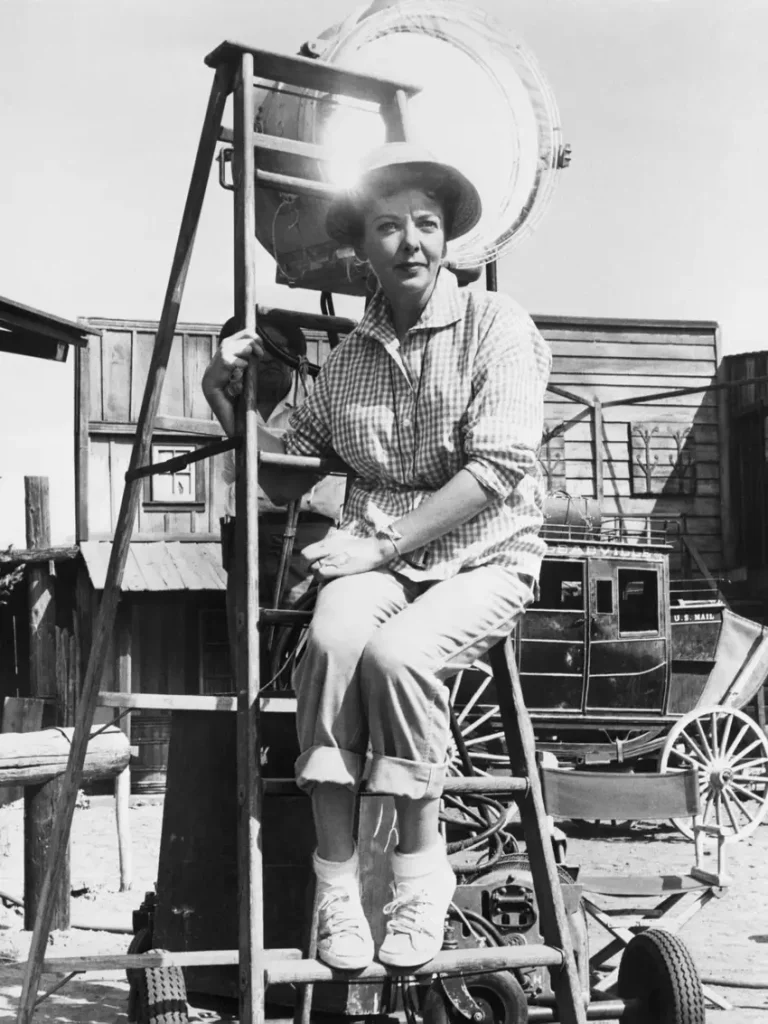I wrote this for the Mesilla Valley Film Society’s screening of The Hitch-Hiker in March, 2023.
While Ida Lupino (1918-1995) is undoubtedly best known for her roles in film noir classics like the Bogart flick High Sierra, Raoul Walsh’s They Live By Night, and 1948’s Road House (in which she sings quite well), the real highlight of her career is the four-year stretch between 1949 and 1953. In that period, she co-founded her own production company (The Filmakers, with then-husband Collier Young) and directed six low-budget, issue-oriented pictures: Not Wanted; Never Fear; Outrage; Hard, Fast and Beautiful; The Hitch-Hiker and The Bigamist.
(A quick aside: we can thank Jack Warner for this burst of creativity. It was during one of her many suspensions — she frequently objected to the studio head’s casting choices for her — that she took it upon herself to learn about directing and editing films.)
The first movie from The Filmakers was Not Wanted, a frank drama about an unwed mother that Lupino produced and co-wrote with Paul Jerrico. Elmer Clifton was the film’s original director, but he suffered a heart attack during production, prompting Lupino to take the helm. She’s uncredited in the movie’s final release, but it’s very easy to see the brisk, efficient voice used here in her next film, Never Fear. This low budget drama starred Not Wanted’s Sally Forrest as a young dancer felled by polio, a disease that the writer-director had herself suffered in the 1930s.

The next movie, 1950’s Outrage, would be only the second post-Hays Code Hollywood production to deal with the issue of rape, while Hard, Fast and Beautiful told the story of a mother exploiting her tennis player daughter’s talents. While the latter is the least of Lupino’s directorial efforts, Sally Forrest is very good as the lead and you can spot Lupino and her On Dangerous Ground co-star Robert Ryan in a few of the crowd scenes.
The most intense (and popular) film Lupino directed from this period is the 71-minute-long The Hitch-Hiker, which you should see (or will be seeing if you’re hearing me talk about this in the theater.) The Hitch-Hiker is the definition of lean, a ripped-from-the-headlines tale adapted by the blacklisted Robert L. Joseph that clocks in at just 71 minutes. It stars Edmond O’Brien and Frank Lovejoy as a pair of men on a fishing trip who come across Perry Mason’s Hamilton Burger himself, William Talman, playing the psychopathic Emmett Myers. This taut thriller is generally cited as the first (and only) classic Hollywood noir directed by a woman, which seems a real shame to me, given how poorly the genre generally treats its leading ladies.

After this came Lupino’s final film as director for over a decade: The Bigamist. She is in front of the camera for this one, too, starring with Joan Fontaine, The Hitch-Hiker’s Edmond O’Brien, and Edmund Gwynn. The movie is quite good as a drama, but it’s the behind-the-scenes story that comes to mind whenever the film comes up. By the time The Bigamist was made, Lupino and Collier Young had divorced and he had married Fontaine. With Lupino’s permission, producer and screenwriter Young mined his own infidelities and fallibility to give the titular character some veritas and you can definitely feel three people working through something during The Bigamist’s 80 minutes.
After The Bigamist, there were only two more films to come from The Filmmakers: Don Siegel’s Private Hell 36 (co-written by and starring Lupino) and Mad At The World.
Lupino would move on to TV, directing episodes of shows like Alfred Hitchcock Presents, The Twilight Zone, and The Untouchables. She also moved to TV as an actress, appearing in front of the camera in 19 episodes of Four Star Playhouse along with guest stints on Batman, The Wild Wild West, The Mod Squad and even playing Johnny Cash’s wife in the excellent Columbo installment, “Swan Song.”

Lupino’s final theatrical picture as director was The Trouble With Angels, a 1966 comedy about the students at St. Francis Academy and the nuns they drove crazy. Her two final films as an actress were the cult classic The Devil’s Rain, which featured an amazing performance from Ernest Borgnine and The Food of the Gods, a much-panned American International adaptation of H.G. Wells designed for drive-ins.
While Lupino’s directorial efforts are rightfully recognized by film aficionados, it’s sad that this smart, driven woman’s career didn’t recover from the breakup of The Filmakers. In a better world, we’d talk about Lupino with the same reverence that we give Kubrick, Scorcese, and Welles.
(Oh, and the title of this piece? It’s the phrase that Lupino had stitched across the back of the director’s chair that she brought to every set she worked on. She truly believed that her job was to be the mother of each production with all the responsibility that entails.)
Leave a Reply